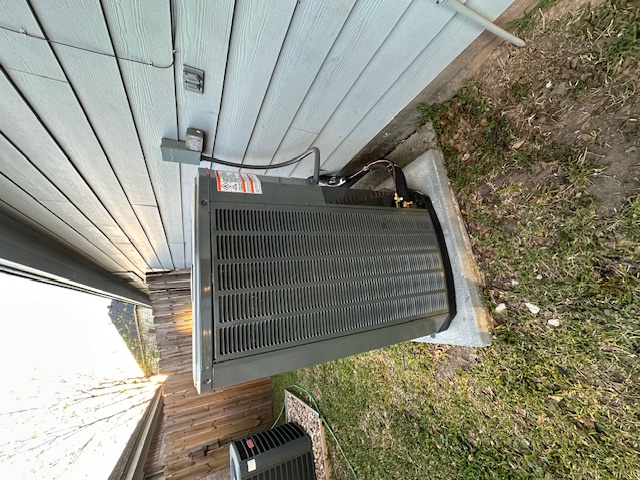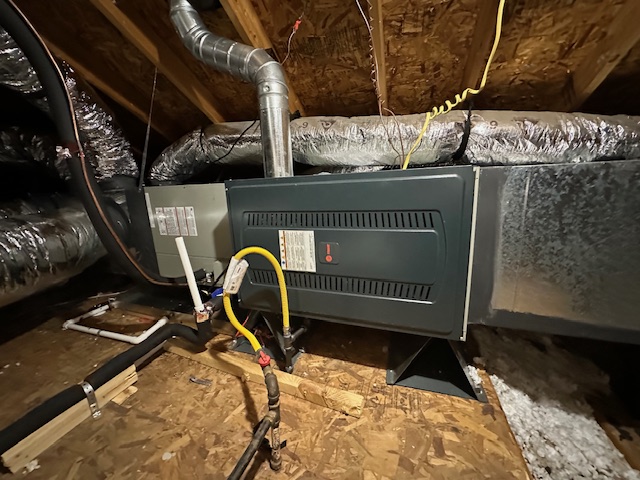Air conditioners break down more often in summer because they work harder to cool your homes in hot weather. This extra strain can cause parts to wear out faster or fail. Dirty condenser coils, low refrigerant levels, and clogged drains are common issues that increase the chance of a breakdown.
Homes rely on their AC units more during the hottest months, making maintenance even more important. Regular cleaning and professional check-ups help keep your AC system running smoothly and reduce the risk of sudden problems. By understanding why these breakdowns happen, you can take simple steps to prevent them and stay comfortable during summer.
Why Air Conditioner Breakdowns Surge in Summer
When temperatures rise, air conditioners must work harder to keep your home cool. This heavier workload, combined with increased humidity and the natural limits of HVAC parts, often leads to more frequent breakdowns during summer.
Increased Cooling Demands
During summer, the air conditioner runs longer and more often because heat builds up quickly inside and outside your home. This constant operation puts extra pressure on the system. The compressor and fan motors work overtime to maintain a comfortable temperature. This heavy use increases wear on parts like belts and coils. If the air conditioner isn’t fully maintained, dirt or refrigerant leaks can make it less efficient, causing it to overheat or fail.
Humidity’s Impact on Air Conditioning
High summer humidity means the air conditioner has to remove more moisture from the air. This process makes the system work even harder than just cooling the air. Excess humidity can cause coils to freeze or drain lines to clog, which blocks normal operation. These blockages often lead to system shutdowns or damage. To reduce failures, it’s important to check and clean air filters and drain lines regularly because wet or blocked components strain the AC unit.
Heavy Strain on HVAC Components
Summer heat puts stress on key HVAC parts like the condenser coils, compressors, and fans. When these parts struggle to work efficiently, they wear out faster. Dirty or clogged condenser coils reduce heat transfer, meaning the unit must run longer, which raises energy use and risks breakdown. Electrical parts can overheat, and refrigerant levels may drop, causing poor performance.
Component
Common Summer Issue
Result
Condenser Coils
Dirt buildup
Reduced cooling, wear
Compressor
Overwork
Overheating, failure
Fan Motors
Continuous running
Motor burnout
Common Causes of Summer AC Failures
Air conditioners face extra stress in summer because they run longer and work harder. This leads to problems like blocked airflow, low refrigerant, and overheating of key parts.
Clogged Air Filters and Restricted Airflow
Air filters trap dust and dirt to protect your AC system. When these filters get clogged, they block airflow through the unit. This forces the system to work harder to cool the air, raising energy use and wearing down the parts faster. Restricted airflow causes the evaporator coil to freeze, reducing cooling power. It can also make the compressor overheat, leading to breakdowns. Checking and replacing the air filter regularly, especially in summer, prevents these issues and keeps air moving smoothly.
Low Refrigerant or Freon Levels
Refrigerant is the fluid that absorbs heat and cools your home. If the system leaks refrigerant, it can’t cool properly, and the AC runs longer to try to reach the set temperature. Low refrigerant levels cause the evaporator coil to get too cold, which can freeze and damage the system. You may notice less cool air or higher bills. Catching leaks early and refilling refrigerant keeps the system working efficiently.
Compressor and Condenser Overheating
The compressor and condenser work together to release heat outside. When the condenser coils get dirty or blocked by debris, heat can’t transfer well. This causes the compressor to overheat. Overheated compressors stop working or get damaged, which leads to costly repairs or replacement. Cleaning the outdoor unit regularly and ensuring clear airflow around it helps prevent overheating and breakdown.
Evaporator Coil Problems
The evaporator coil absorbs heat from inside your home. Dirt buildup on this coil lowers its ability to absorb heat, reducing cooling performance. It also causes the coil to freeze, which can cause water damage or system shutdown. Cleaning the evaporator coil ensures good airflow, preventing these problems. If the coil freezes, it usually means airflow is blocked or refrigerant is low, so it’s important to fix the underlying causes quickly.
Preventative Maintenance for Reliable Cooling
To keep your AC running smoothly during the hot months, you need to focus on simple, regular tasks. These steps reduce repair costs and help maintain a comfortable home. Paying attention to the filter, cleaning key parts, and getting professional help are essential.
Regular Air Filter Replacement
The air filter traps dust, dirt, and particles, but over time, these build up and block airflow. A dirty air filter makes the AC work harder, which can cause it to overheat or break down. Replace or clean the AC filter every 1 to 3 months, depending on usage and filter type. This prevents clogging and keeps the air quality good. Regular filter changes improve efficiency, lower energy bills, and reduce the chance of costly repairs.
Cleaning the Outdoor Unit
The outdoor unit can get blocked by leaves, dirt, and debris, which limits airflow and reduces the AC’s ability to cool air effectively. It also puts extra strain on the system. Clear all debris around the unit and wash its exterior regularly. Keeping the outdoor coils clean helps the system run cooler and extends its life. You must also trim nearby plants to allow good airflow. A clean outdoor unit lowers maintenance needs and repair costs.
Professional Inspection and Servicing
Even with regular self-care, you occasionally need experts to check your AC once a year. A professional inspection includes checking refrigerant levels, cleaning coils deeply, and testing all parts. Technicians can spot issues before they become big problems and perform essential maintenance. This service keeps your system efficient, helps avoid unexpected breakdowns, and can save you from expensive repairs. Scheduling tune-ups before summer is the best way to ensure reliable cooling when you need it most.
Energy Efficiency and Cost Considerations
Keeping your air conditioning running efficiently saves money and reduces the chance of breakdowns during hot months. You can lower repair costs, manage humidity better, and decide when upgrading old units makes sense. Each step helps control energy bills and keeps your home comfortable.
Reducing Repair Costs and Energy Bills
Regular maintenance helps avoid expensive repairs. Cleaning filters and checking refrigerant levels make your AC work smoothly without extra strain. When air conditioners work harder in heat, energy use rises, causing higher bills. Using a programmable thermostat to run the AC cuts energy waste. You should also keep vents clear and seal leaks to avoid cooling losses. These simple actions reduce both repair chances and energy bills by easing demand on the system.
Optimizing Dehumidification
High humidity forces AC units to remove moisture before cooling air, which adds strain. You can help by using fans to circulate air and slightly raising thermostat settings to ease the load on the dehumidification function. Closing windows and doors during peak heat keeps indoor air drier. You might also consider a standalone dehumidifier in very humid climates to reduce pressure on the AC. This lowers energy use and helps avoid breakdowns tied to overworked components.
Upgrading Outdated Equipment
Older air conditioning units often lack modern efficiency features and work harder than new models. Upgrading to an energy-efficient AC unit can cut electricity use and lower repair frequency. Look for units with a high SEER rating and smart controls. These newer models adapt better to temperature changes and humidity, reducing wear and tear. Although upgrading costs upfront, the long-term savings on energy bills and repairs usually justify the investment.
Get in touch to schedule your next AC tune-up to avoid potential breakdowns and wasted energy.











